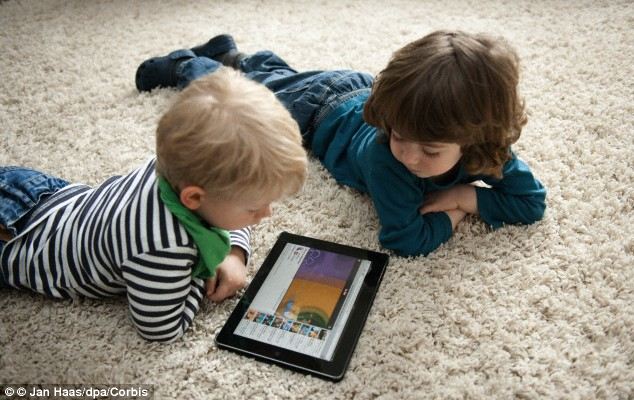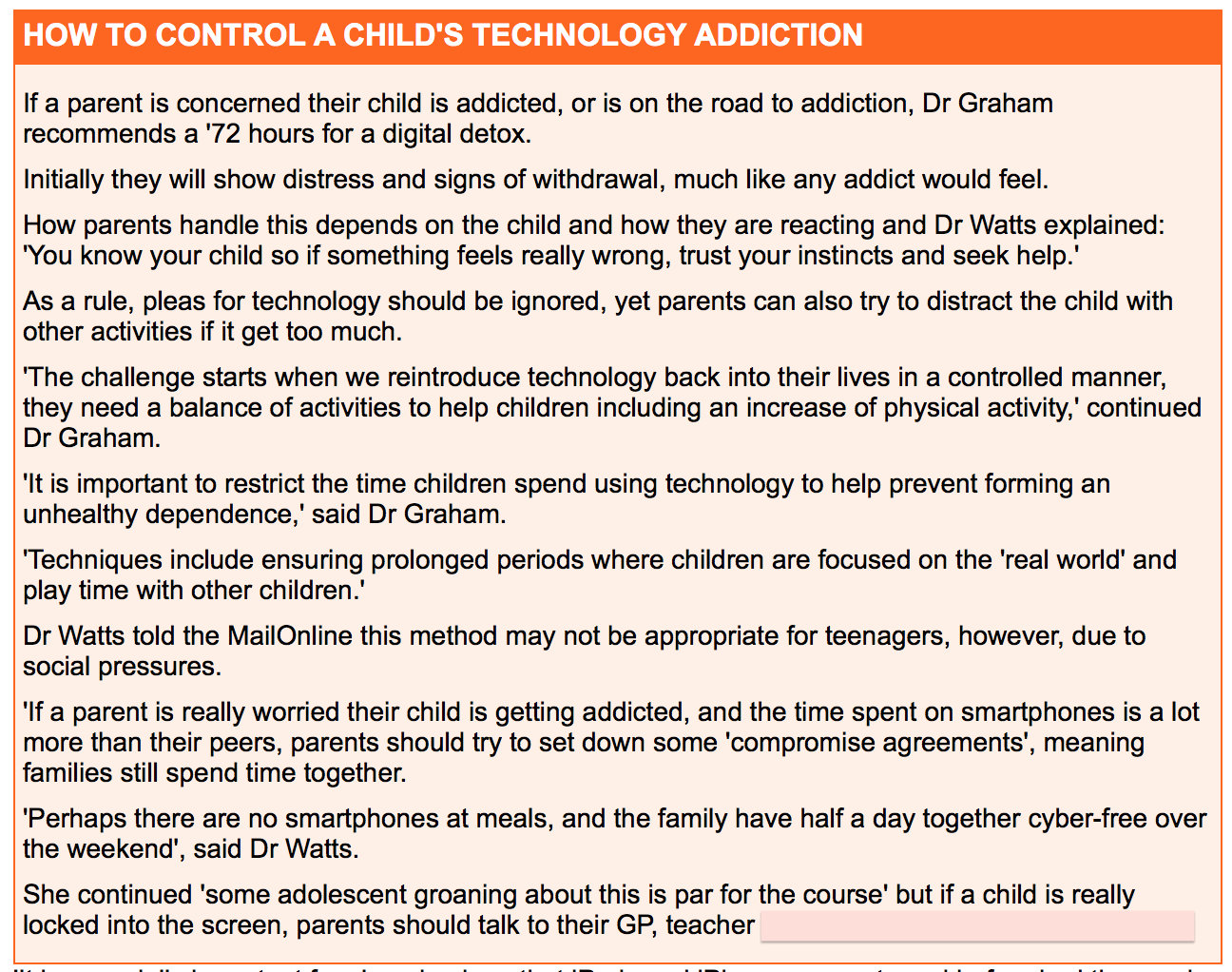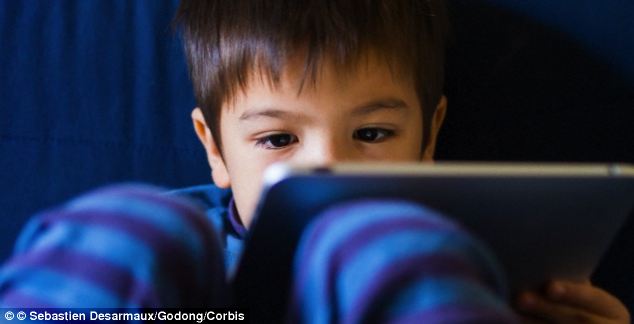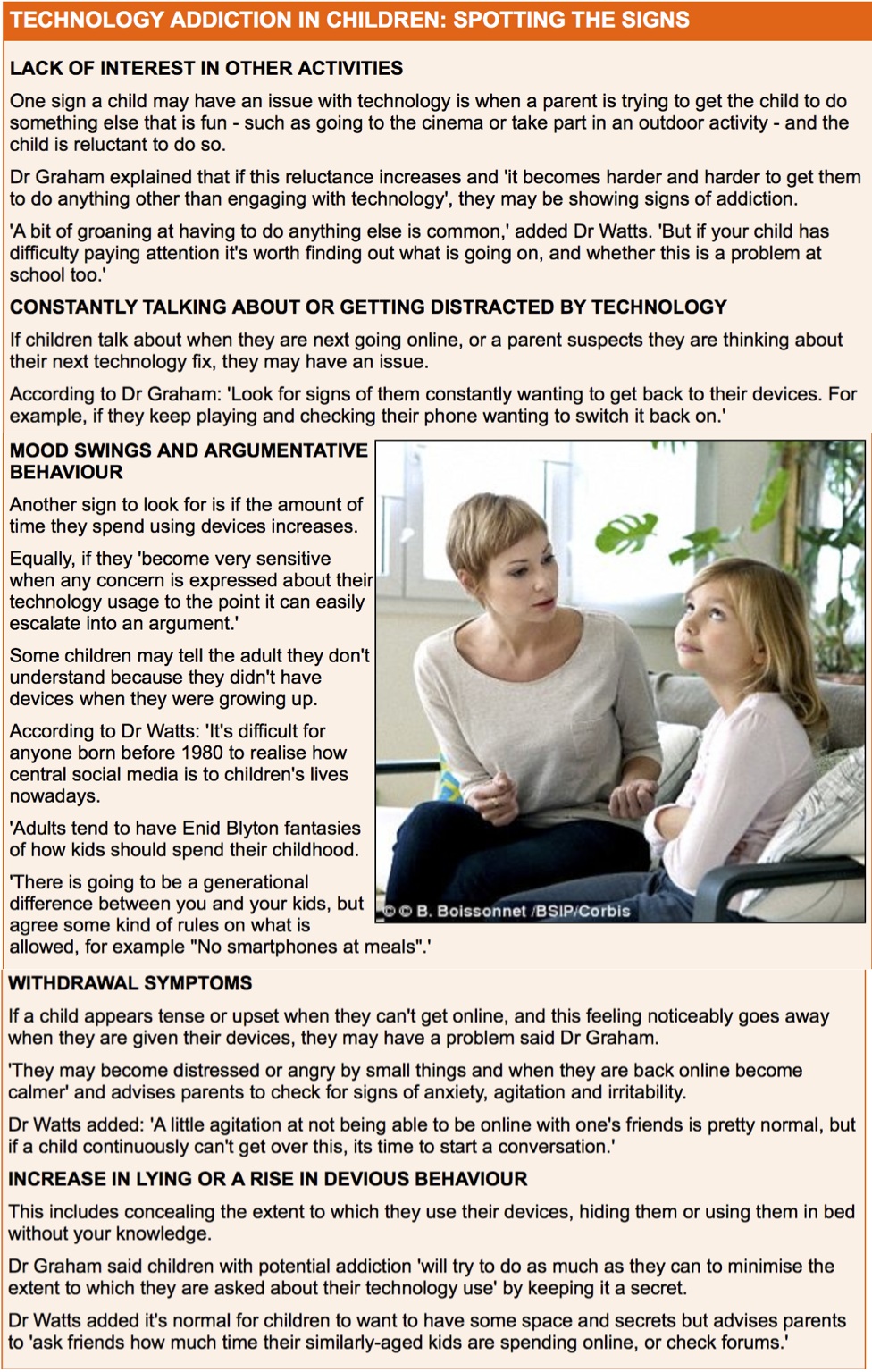- One in three children are using tablets and phones before they can talk
- The rise in gadgets is being attributed to the rise in technology addiction
- Addiction in children can interfere with their sleeping patterns and eating
- Signs include withdrawal symptoms and a rise in devious behaviour
- Experts explain how to impose a 'digital detox' if a parent is concerned
Tablets and phones have replaced the TV as a way of pacifying children and keeping them entertained - recent figures, for example, have revealed that one in three toddlers use a gadget before they can even talk.
Yet these devices could be having a significant impact of the mental health of young people.
 London-based Consultant Adolescent Psychiatrist Dr Richard Graham and Clinical Psychologist Dr Jay Watts say that technology addiction can affect a child's behaviour and sleeping patterns.
London-based Consultant Adolescent Psychiatrist Dr Richard Graham and Clinical Psychologist Dr Jay Watts say that technology addiction can affect a child's behaviour and sleeping patterns.
In an interview with MailOnline, they highlighted the five signs to look out for if you think your child may be hooked.
They also stressed the importance of taking a 'digital detox' to remedy their obsession. 
'When people feel an uncomfortable sense of withdrawal when not online, we know that the relationship with technology is not being managed properly,' said Dr Graham from theCapio Nightingale Hospital, a mental health hospital based in central London.
Dr Watts added: 'Parents today often struggle with understanding how crucial social media is to children today; the modern day playground is virtual.'
'Yet when electronic devices start to have more influence over behaviour than anyone else or anything else, when children become very distressed when technology is removed from them, that is the moment when really you need to start changing things,' continued Dr Graham.
For children who are addicted to technology, it is primarily about the way they feel when using it that is the issue, they explained.
'Children who are not addicted may get a buzz from a range of activities not just technology.
'If a child is displaying signs of severe distress and agitation when separated from technology, then we know there is an unhealthy dependence.'
In effect, it is giving them a 'hit', similar to a drug user.
This unhealthy dependence doesn't just mean the child becomes agitated when told they can't use technology, Dr Graham also explains that the addiction may manifest itself in other behaviours.
Technology addiction can impact a child's sleep, interfere with meal times and eating habits and make children act up during play time.
Dr Graham continued that addicted children may become secretive and defensive about their gadgets and their gadget use, as well as argue with parents more often.
Additionally, children addicted to technology may also avoid or ignore real-life activities and refuse to go to places where their gadgets can't be used, such as the cinema.
Dr Watts said: It's pretty much guaranteed parents will think their child is spending too much time online or on smartphones. The key thing is to talk to other parents at the school gates, or similar, to find out if a child is more preoccupied than their mates.
'If there is a real difference, you need to speak to your child not just about cybersafety, but about what is so preoccupying, what might be addictive within it, and what this addiction might help them avoid in the real world'
It is important to restrict the time children spend using technology to help prevent forming an unhealthy dependence,' continued Dr Graham.
 'Techniques include ensuring prolonged periods where children are focused on the 'real world' and play time with other children.
'Techniques include ensuring prolonged periods where children are focused on the 'real world' and play time with other children.
'Establishing a maximum daily time allowance can be a good place to start. It is also about making sure adults leave their phones off or on silent during meal times and when with friends and family as children learn behaviour from their parents.
'It is especially important for sleep hygiene that iPads and iPhones are not used before bed time and that they are kept in a different room overnight to stop children from using the devices straight before, during and after sleep.'
If a parent is concerned that their child is addicted, or is on the road to addiction, Dr Graham recommends a specific course of treatment.
'We recommend 72 hours for a digital detox. Initially they will show distress and signs of withdrawal, much like any addict would feel.
'The challenge starts when we reintroduce technology back into their lives in a controlled manner, they need a balance of activities to help children including an increase of physical activity.'
The Capio Nightingale Hospital additionally has an online test that anyone can take that assesses the extent of a person's relationship with technology.
Dr Graham advises taking this test as an important first step in ascertaining whether technology use is abnormal or problematic.
Although the test is primarily aimed at adults, Dr Graham adds it might help parents who are concerned about their children’s behaviour.


